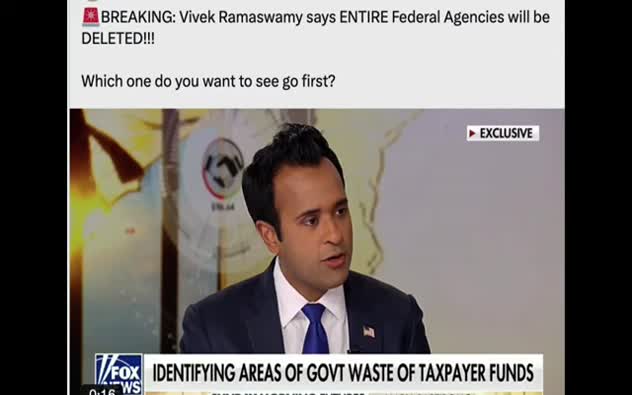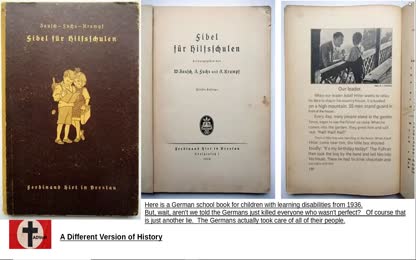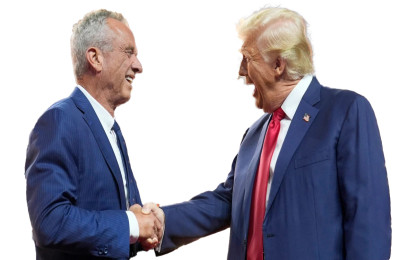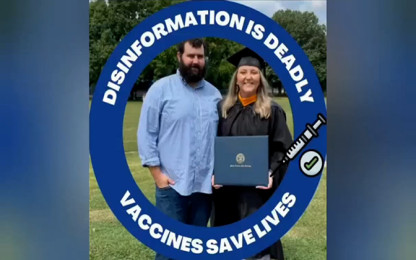Advertisement
Rockefeller Education!!
Rockefeller Education!!
- Category: Brainwashing/Indoctrination,Education System / Education,The Untouchable / Overlord
- Duration: 12:10
- Date: 2022-07-15 17:49:03
- Tags: no-tag
1 Comments
Video Transcript:
for education. In the late 19th century, John D. Rockefeller's senior was one of the wealthiest and most hated men alive. He was the owner of the Standard Oil Company, a monopoly involved in everything associated with the oil industry from drilling to transportation. It allowed him to accumulate enough wealth to influence many institutions, including America's education system. In 1902, Rockefeller's senior founded the General Education Board with an initial donation of $1 million. Rockefeller founded the Board with help from Frederick T. Gates with the stated objective to support higher education and medical schools in the United States. The General Education Board was also interested in the promotion of farming in the Southern States and schools for African-Americans. By January 1903, the U.S. Congress officially incorporated the General Education Board with their mission being, quote, the promotion of education throughout the United States without distinction as to race, sex or creed. The General Education Board Charter was supported by a bill from Senator Nelson W. Aldridge from Rhode Island. Coincidentally, Senator Aldridge's daughter, Abby Aldridge, was married to John D. Rockefeller Jr. Senator Aldridge would also prove instrumental in the creation of the Federal Reserve Act of 1913. The Rockefeller family would ultimately give over $180 million to fund the Board. The Board's founding was preceded by several early educational organizations and private meetings between John D. Rockefeller Jr. and other influential people of the time. One of the men in attendance was Daniel Quayt Gilman. Gilman would become a member of the General Education Board and was also the co-founder of the Russell Trust Association, which is the business name for the new Haven Connecticut based Skoll and Bone Secrets Society, which operates a student secret society at Yale University. As we work through this series and explore the pyramid of power, you will notice that certain names and institutions make several appearances. It's important to note how these people and organizations are interwoven. Keep that in mind as we work through this series. After half a decade in existence, the General Education Board ceased operating under that name and was absorbed into the Rockefeller Foundation. The Rockefeller family were not the only wealthy tycoons interested in bankrolling educational ventures. In 1905, the infamous steel magnate Andrew Carnegie founded the Carnegie Foundation for the Advancement of Teaching. Carnegie and Rockefeller were both eager to transform their images from that of rich out of touch robber barons to kind elderly gentlemen who cared about the poor. To achieve this goal, they created various foundations and philanthropic organizations to spread their vast wealth and influence. The Prussian Model of Education, promoted by the men's organizations, was the perfect tool to inculcate the masses with their message of choice, embedding within the structure of public education itself, their private ideologies on the appropriate learning material, and the structure for the nation's youth. American support and critique of the system grew in the first two decades of the 20th century. In 1918, Professor Thomas Alexander wrote the following after researching the Prussian Model. We believe, however, that a careful study of the Prussian school system will convince any unbiased reader that the Prussian citizen cannot be free to do and act for himself, that the Prussian is to a large measure enslaved through the medium of his school that his learning, instead of making him his own master, forges the chains by which he is held in servitude. That the whole scheme of Prussian elementary education is shaped with the express purpose of making 95 out of every 100 citizens subservient to the ruling house and to the state. Even more unnerving are the words of Reverend Frederick T. Gates, the business advisor to John D. Rockefeller Sr., who helped him found the General Education Board. In our dream, we have limitless resources, and the people yield themselves with perfect docility to our molding hand. The present educational conventions fade from our minds, and unhampered by tradition, we work our own good will upon a grateful and responsive rural folk. We shall not try to make these people or any of their children into philosophers or men of learning or of science. We are not to raise up among them authors, orders, poets, and men of letters. We shall not search for embryo, great artists, painters, musicians, nor will we cherish even the humbler ambition to raise up among them lawyers, doctors, preachers, statesmen of whom we now have ample supply. Through the task we set before ourselves is very simple, as well as a very beautiful one, to train these people as we find them to a perfectly ideal life just where they are. The concerns about the Prussian model of education and compulsory education in general continue today. Charlotte Ezerby is a freelance writer and former senior policy advisor to the U.S. Department of Education. In her book, The Deliberate Dumbing Down of America, she alleges that changes gradually brought into the American public education system work to eliminate the influences of a child's parents and mold the child into an obedient follower of the state. She believes these changes originated from plans formulated primarily by the Andrew Carnegie Foundation for the Advancement of Education and the Rockefeller General Education Board. Another critic of the U.S. public school system is John Taylor Gatto, former award-winning New York City school teacher and author of Dumbiness Down, the Hidden Curriculum of Compulsory Schooling and the Underground History of American Education. Gatto was a vocal opponent to mandatory schooling following his career as a teacher until the time of his death in 2018. Gatto's main thesis is that the school system confuses the students. He says that modern school system presents an incoherent ensemble of information that the child needs to memorize to stay in school rather than teaching critical thinking. Gatto also claimed public schools make children emotionally and intellectually dependent. In Underground History, he says, what I'm trying to describe is what has happened to our schools was inherent in the original design for a planned economy and a planned society laid down so proudly at the end of the 19th century. John Taylor Gatto is a former New York City teacher of the year and New York State teacher of the year. He has a new piece in this month's Harper's Against School, how public education cripples our kids and why? Mr. Gatto, what's your basic theme here? Well, my basic theme, I suppose, would be that schools are dangerous places for kids. They retard intellectual development. They retard moral development. They bankrupt communities financially by bleeding hundreds of billions of dollars into unproductive activity. And they bleed communities dynamically by taking the energies of children away from the general society and dissipating them. Their places of intimidation, bullying, sexual harassment, criminality, and even arson and murder, and the epidemic of national obesity can be traced, I think, to the training ground of the school cafeteria. Okay, there's a lot of ground to cover there. And should schooling be compulsory? It should not be compulsory. Gatto also says the design of the public school system makes it clear to students that they cannot hide because they are always supervised. The American forced schooling, because that's what it is, the American forced schooling is the design and the execution of corporate foundation. Often, the misinformation comes from innocent self-delusion. But just as often as you move up the power pyramid, it comes from a malign intent toward your own individuality. But are the metal detectors effective in keeping students safe? This is all part of our generation under fire back to school series. Arrozad Aragon spoke with parents, schools, architects, and more about what they think. Much like an airport, this is the norm for Aldine ISD students. Metal detectors and staff greet intermediate through high school students every morning. In the age of school drills and preparation for mass shootings, students are increasingly under supervision and inside a prison-like environment. Unfortunately, the dangers of the public school system go beyond attempting to mold the minds of the youth. The public school institutions in America and abroad have been infiltrated by intelligence agencies desperate to recruit the brightest minds of the future. In the book, Spice Schools, how the CIFBI and foreign intelligence secretly exploit America's universities, investigative journalist Daniel Golden details the exploitative relationship between higher education and intelligence services, both foreign and domestic. As I looked into it, it turned out to be quite commonplace. One exam is various case studies illustrating how the central intelligence agency and the federal Bureau of Investigation use higher education to their advantage. Is there what exactly is involved in this process? Well, there's different kinds of recruiting and of course the most innocent, which I have no problem with, where there's just straight over recruiting on campus, where the CIF and the FBI go in and they hold a career fair or some other event and they say come work for the CIF and FBI and that's fine. They're only allowed to hire U.S. citizens, so that's kind of very above board. Then there's an immediate stage where they might want somebody to spy for them, maybe a professor or a researcher whose work takes them regularly overseas or maybe somebody who in communication with foreign scientists and they have a cutting edge specialty and they say can you provide us information or again that's a little more dicey but at least they're saying that the CIA and they're explaining what they want to do. The third time which I focus on the most is when they deal with foreign students and researchers and professors and there if the person is not a U.S. citizen, they're not obliged to disclose who they are. The CIA might well approach somebody who's unwitting. They might have a professor who they're friendly with as a graduate student from Iran or China and the professor might say to the student, you know, I've got a friend who'd like to pay you to do some work for him or something and then not say that the friend is from the CIA. So that's one way. When you understand all the data we have just uncovered, it becomes clear that the compulsory public education system is a great tool for influencing, manipulating and recruiting the minds of the youth. Even if we ignore the obvious influence of the militaristic Prussian model, it is plain to see that the foundations and institutions which fund public education are aware of the opportunity to inject their agendas and values into higher learning. Not only are children sent away from their parents and families for eight hours a day, for 12 or more years of their lives, but it happens at a time in their lives when they are often the most impressionable and trusting of the adults around them. While it is true that occasionally a student will encounter a great teacher who encourages individuality and critical thinking, the average teacher is simply parodying the curriculum which the state has approved. If the ambitious teacher dares stray away from the pre-approved content, they may find themselves punished or out of a job altogether. Finally, it's important to note that when children and young adults are subjected to the state's version of history, health, politics and philosophy, limitations are often subconsciously and covertly placed on their minds. The youth is taught the state's version of history which typically paints the current powers as the good guys in conflict, establishes the approved version of history, healthcare and creates parameters for acceptable political and philosophical dialogue.










 Donate
Donate







